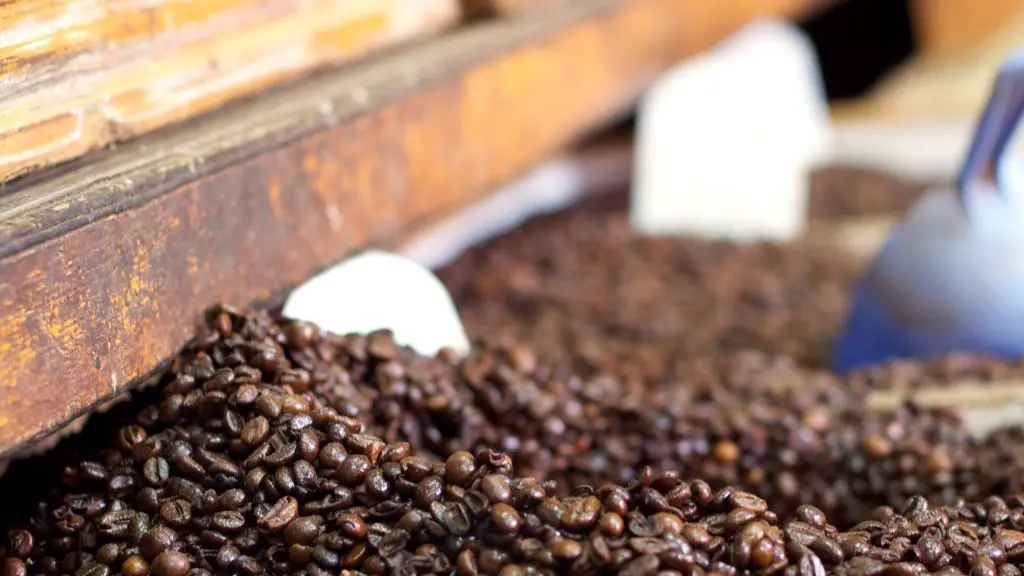Impact of Coffee on Dogs’ Health
Coffee has become a staple in many people’s daily lives and is becoming increasingly popular among pet owners as well. The question remains – is it safe for dogs to consume coffee?
Coffee is a major source of caffeine, a stimulant that is known to disrupt many of the body’s natural processes. Caffeine has been found to be toxic to dogs, although many daily activities can indirectly lead to their ingestion. Therefore, it is important to be aware of the potential adverse effects of coffee on dogs.
Veterinarians typically advise pet owners against giving their pets coffee. Caffeine is found in coffee beans, and in ground or instant coffee, and can cause a wide range of medical problems. These include restlessness, increased heart rate, breathing issues, difficulty sleeping, tremors, vomiting, diarrhoea, and acute kidney failure.
Dr. Chris Carbonaro, a veterinarian at Smith Ridge Veterinary Clinic in South Salem, New York, said that coffee could cause serious health issues in dogs. He notes that it is important for pet owners to be aware of the risks associated with feeding their dogs coffee.
Dr. Carbonaro cautions that dogs should never be given coffee, regardless of the amount. Even a small amount of coffee is too much for a dog and can have devastating effects. He recommends providing an alternate drink, such as water, for dogs instead.
Since coffee is often served with creamers or sweeteners, it can also contain large amounts of sugar. Dogs need far less sugar than humans, so even sweetened coffee can be harmful to them. Excessive sugar intake can lead to diabetes, obesity, and other lifestyle-related illnesses in dogs.
Behavioural Effects of Coffee on Dogs
Coffee can also cause behavioural changes in dogs. Caffeine acts as a stimulant, just as it does in humans, and can cause dogs to become hyperactive and agitated. As the caffeine rush wears off, dogs may also become lethargic and disoriented.
Dr. Carbonaro notes that such behavioural changes are not only unsettling for the dog, but can be distressing for the owner as well. He suggests avoiding coffee-like drinks and looking into other caffeine-free options that are available.
In addition to its behavioural effects, caffeine can also cause seizures in some dogs. Recent studies have shown that caffeine can increase a dog’s risk of seizure by more than 64 percent, so it is important that pet owners are aware of the potential consequences of giving their dog coffee.
Alternatives to Coffee for Dogs
Fortunately, there are several alternatives for pet owners who want to offer their dogs a refreshing and stimulating drink. Coconut water, for example, is low in calories and high in electrolytes and other minerals, making it a great choice for an active, healthy dog.
Chamomile tea is another excellent option for dogs, as it is calming for humans and animals alike. It works to reduce anxiety and is often used as a sleep aid in humans and animals alike.
Many pet owners opt to give their dogs ice cubes, as they are not only stimulating but safe and healthy as well. Ice cubes offer a cool, refreshing experience during the summer months, and they can be safely consumed by dogs without any risk of adverse effects.
Preventing Coffee Accidents
Accidental ingestion of coffee is quite common and can occur if a dog gets into a mug or cup left unattended. Pet owners should take precautions to avoid such accidents by keeping their coffee mugs and cups out of reach of their pet.
Dr. Carbonaro recommends setting up boundaries for your pet and making sure that areas such as the kitchen and dining room are out of bounds. He also suggests making sure that your pet has an area that is safe and free from potential hazards. In addition, he notes that it is a good idea to invest in pet-proof garbage cans and cans covers.
Coffee Substitute Treats For Dogs
Pet owners who want to give their dog a special treat without putting them at risk can opt for coffee-free treats. There are many commercial treats and snacks on the market that are specially formulated for dogs and are safe for consumption.
For pet owners who want to avoid store-bought treats, there are plenty of easy-to-make recipes that can be made from ingredients found in most kitchens. Cupcakes made from banana, peanut butter, and honey make great treats, as do mini muffins made from blueberries and applesauce.
The Bottom Line: Help Your Dog Enjoy Treats Safely
In the end, it is important for pet owners to remember that coffee can be extremely dangerous to dogs. While it may be tempting to offer them a cup of coffee or a coffee-flavoured treat, the risks far outweigh the benefits.
Pet owners should opt for safe, caffeine-free alternatives whenever possible. Providing your dog with healthy, nutrient-rich treats and snacks is a great way to show your pet how much you care. And making sure that these treats are coffee-free will ensure your pet’s safety and wellbeing.
Tips To Incorporate Coffee Substitutes
Incorporating caffeine-free coffee substitutes into your pet’s diet can be a great way to make sure that their nutrition needs are being met.Pet owners can buy ready-made coffee substitutes from pet stores or make their own from home.
Coconut milk is a great alternative to coffee for dogs, as it contains no caffeine but still offers a creamy and refreshing taste. Coconut milk can be served by itself or added to other food, such as homemade treats and smoothies.
Chicory root is another healthy alternative to coffee for dogs. Chicory root is a natural prebiotic that is rich in minerals and soluble fibers, making it an excellent source of nutrition for dogs. It is also naturally caffeine-free, which makes it a safe and healthy treat for dogs.
Common Safety Measures With Coffee For Dogs
In order to ensure the safety of your dog, it is important to take measures to ensure that your pet does not come into contact with coffee. This includes making sure that any mugs, cups, and containers of coffee and ground beans are kept out of reach of your pet.
It is also a good idea to train your pet to stay away from places where coffee is kept or consumed. Dr. Carbonaro suggests teaching your pet the “leave it” command, which can help them to avoid potential hazards.
In addition to these measures, it is important to monitor your pet’s activities and behavior closely. If your pet shows signs of distress or ill health, seek veterinary care immediately. Be sure to keep your vet up-to-date on any changes to your pet’s diet or habits.
Finally, it is important to be aware of the potential health risks associated with caffeine and coffee, and to take the necessary measures to ensure your pet’s safety. Offering your pet a safe, caffeine-free alternative can help to ensure that your pet can enjoy treats without putting their health at risk.


